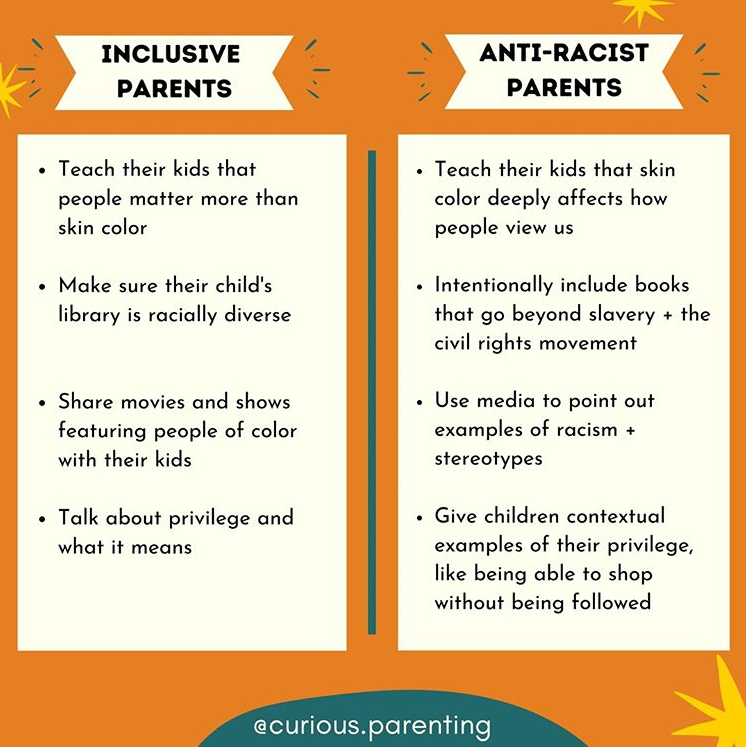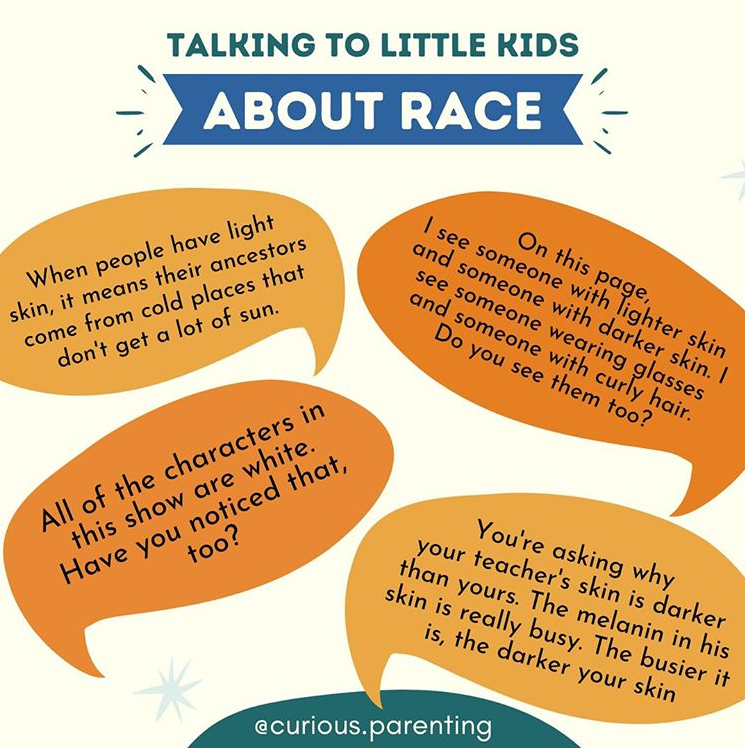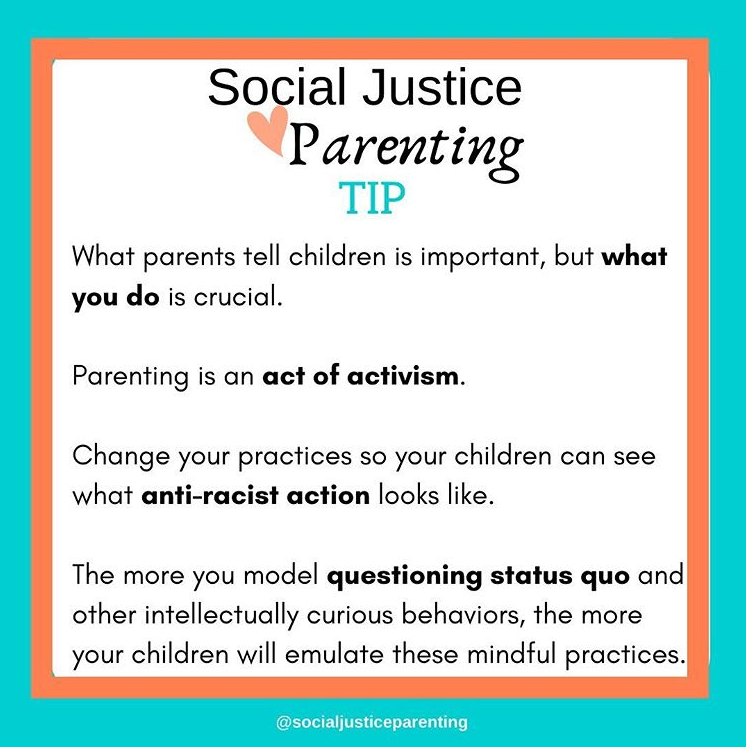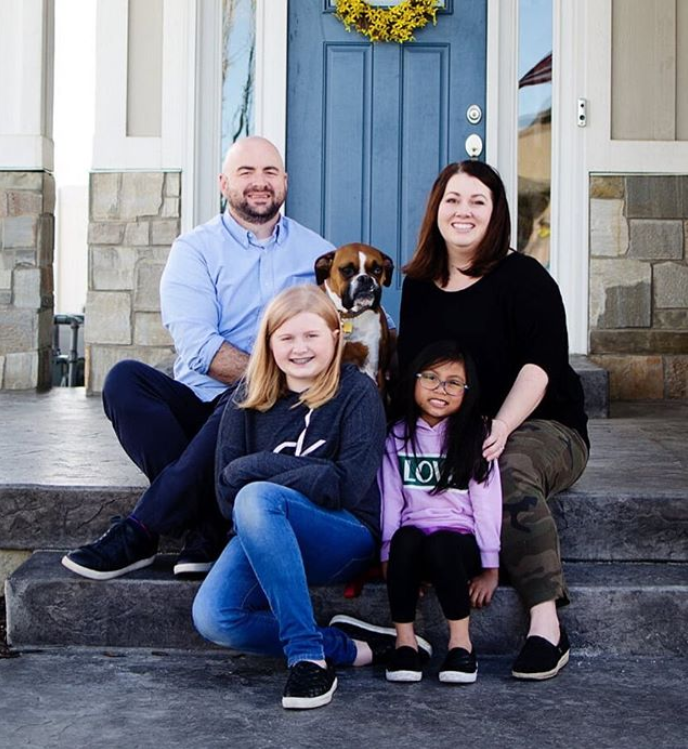( ENSPIRE Features ) Black or White, Having Conversations with Children about Racism is Crucial to Being Anti-Racist
ENSPIRED Contributor: Kyla Yates
Amidst the current rise of the Black Lives Matter movement, it is important that we also educate children, both black and white, about current events as well as racism in general.
Black families are much more likely to be familiar with the conversations often necessary to have with their children regarding racism. However, the topic may be more foreign to many white parents. As Tonya Russel stated in a recent Washington Post article, “It is never easy to discuss racism, no matter your race. Nobody ever feels ready to have these conversations, but the sooner we begin to communicate, the sooner we can all begin to heal.”

Recently my white family and I had a conversation about our white privilege, police brutality, and racism. The conversation was primarily for the benefit of my two younger brothers, 12 and 8 years old, who do not watch the news or have social media. We began by explaining to them the Black Lives Matter movement, as well as George Floyd’s recent murder. We discussed what racism is, and how it still exists today in the United States. We also addressed police brutality, and how, as white individuals, we do not have to fear the police the same way black people do.
When explaining the Black Lives Matter movement, I also brought up the All Lives Matter counter. As we are a Christian family, I compared the situation to the Bible story of the lost sheep, found in Luke 15. A shepherd loses one sheep, so he leaves the other 99 in his herd to go and rescue the one lost. I explained that the All Lives Matter opposition is as if those 99 sheep were complaining that the shepherd was not rescuing them. The point is that they are not lost or in danger — yes, they matter too, but they do not need the additional help that the one lost sheep does.

No matter how daunting it may seem to have a conversation with your children about racism, doing so is crucial, regardless of the color of their skin. @radicalwellness_co on Instagram recently posted a compilation of resources to help parents talk about racism with their children. The resources included the Instagram accounts of Lanesha Tabb (@apron_education), Akilah S. Richard (@fareofthefreechild), Danielle Slaughter (@mamademics), Dr. Traci Baxley (@socialjusticeparenting), and Yolanda Williams (@prntngdcolonized).

Sarah Jarman, a white mother of two adopted girls, has been having conversations about race since her daughters were young. While her older daughter, Gracie, is white, her younger daughter, Lucy, is Filipino. Two years ago, when Lucy was four, their family had a conversation about what makes them different from each other. Lucy began the conversation by pointing out that “You all have yellow skin and I have brown skin.” After discussing other differences between each other, Jarman reminded Lucy that “We do have different colors of skin but we all have skin! We all have hearts that beat. We all share the same last name. We are family because God made it that way and it is fun and chaotic and beautiful and oh so perfect.”
Shortly after George Floyd’s murder, 6-year-old Lucy saw a picture of the last moments of his life on her mom’s Facebook. Jarman let Lucy look at the photo and told her what happened. Jarman says, “She didn’t understand why an officer who was there to protect people, would also hurt them? She immediately asked, ‘Is he in jail?’ I said not yet, but he will be. She then said to me something that made this mama’s heart break, ‘I hope that officer doesn’t kill me because I have different skin.’ I have known of my white privilege for years but listening to my own child express something that I cannot relate to because I have never once had those thoughts; it struck a cord with me. I have never had the thought that I could be killed simply because my skin color wasn’t the same as someone else’s.”

Regardless of the color of yours or your child’s skin, having conversations about race with them is and has always been a crucial part of today’s world. Ignoring racism only makes it worse, and we must acknowledge the trials faced by much of the country’s population, especially if we ourselves are immune simply because of the color of our skin.







